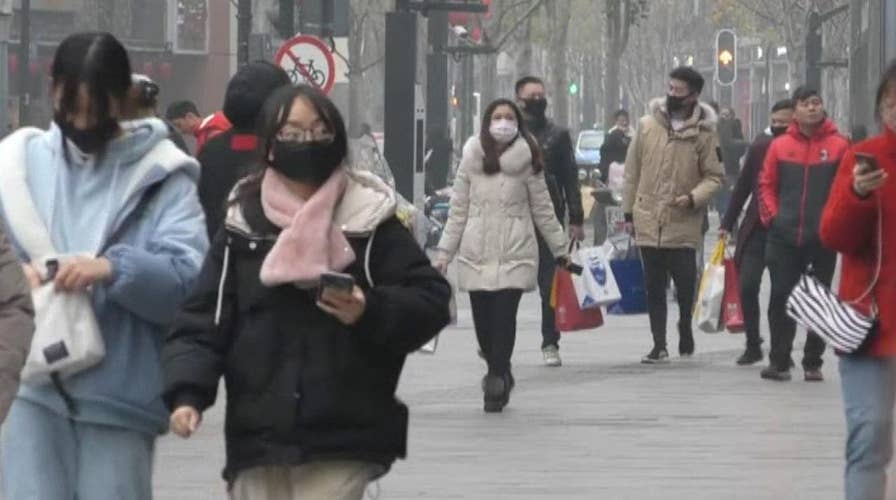Former CDC chief speaks out on coronavirus risk for the U.S.
The first case of the mysterious pneumonia-like virus, which has killed at least six people since first being reported in China, has been confirmed in the U.S. Former director of the Centers for Disease Control and Prevention and President and CEO of Resolve To Save Lives, Dr. Thomas Frieden, weighs in on what to do if symptoms arise and what precautions are being taken to fight the spread of the disease.
Health officials in China grappling to manage the outbreak of a new coronavirus now fear the disease could be a so-called “super-spreader.”
As of Tuesday, the central city of Wuhan — where the outbreak first emerged — reported a total of 198 infected patients, according to the South China Morning Post. Some 15 medical staff in the city have been infected, while at least six people have died from the pneumonia-like illness which has also spread to Thailand, South Korea, Japan and other areas in China, according to the Centers for Disease Control and Prevention (CDC).
HUMAN-TO-HUMAN TRANSMISSION OF CORONAVIRUS IN CHINA CONFIRMED
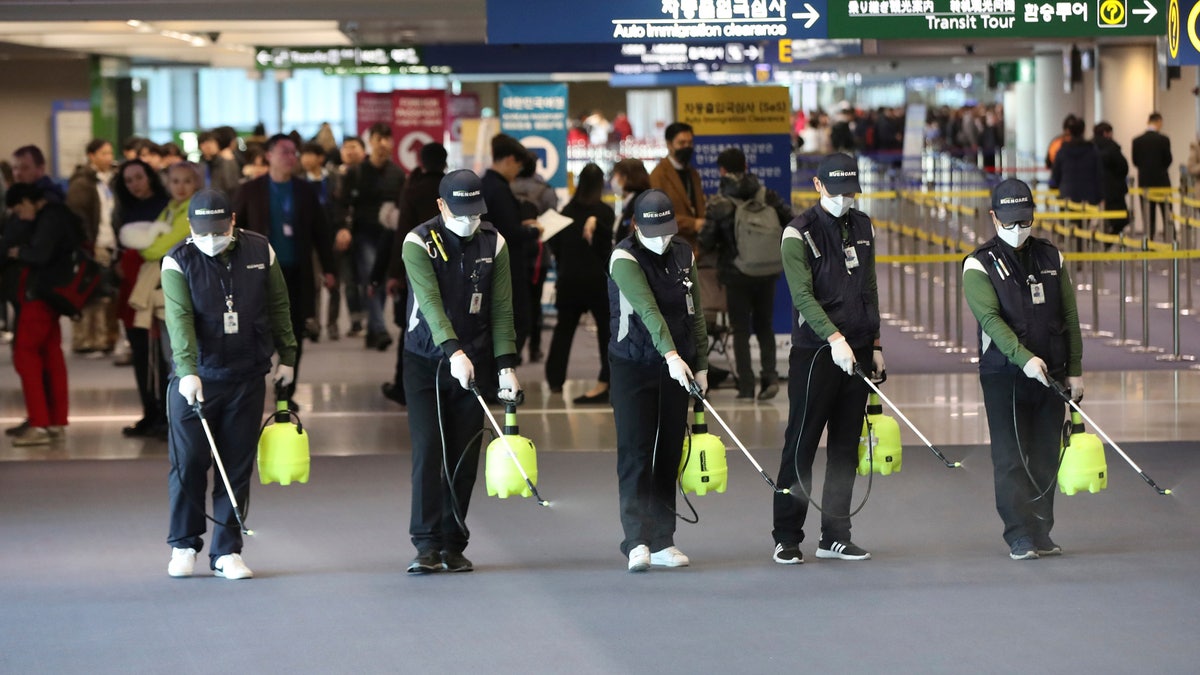
Workers spray antiseptic solution on the arrival lobby amid rising public concerns over the possible spread of a new coronavirus at Incheon International Airport in Incheon, South Korea, Tuesday, Jan. 21, 2020. Heightened precautions were being taken in China and elsewhere Tuesday as governments strove to control the outbreak of a novel coronavirus that threatens to grow during the Lunar New Year travel rush. (Suh Myung-geon/Yonhap via AP)
Some 218 additional cases have been confirmed in mainland China, while 14 people are infected in Guangdong. At least five are sickened in Beijing, and one person is infected in Shanghai, the outlet reported.

People wear face masks as they ride an escalator at the Hong Kong International Airport in Hong Kong, Tuesday, Jan. 21, 2020. Face masks sold out and temperature checks at airports and train stations became the new norm as China strove Tuesday to control the outbreak of a new coronavirus that has reached four other countries and territories and threatens to spread further during the Lunar New Year travel rush. (AP Photo/Ng Han Guan)
Officials this week also confirmed that the new coronavirus, which is linked to a seafood and animal market in Wuhan, is transmissible between humans. This ultimately sparked fears that a person infected with the virus and experiencing the most severe stage of infection could be a super-spreader — someone who transmits the virus to a considerable more amount of people than the average infected person, the South China Morning Post reported.
CDC ANNOUNCES 'ENHANCED HEALTH SCREENINGS' AT 3 MAJOR US AIRPORTS
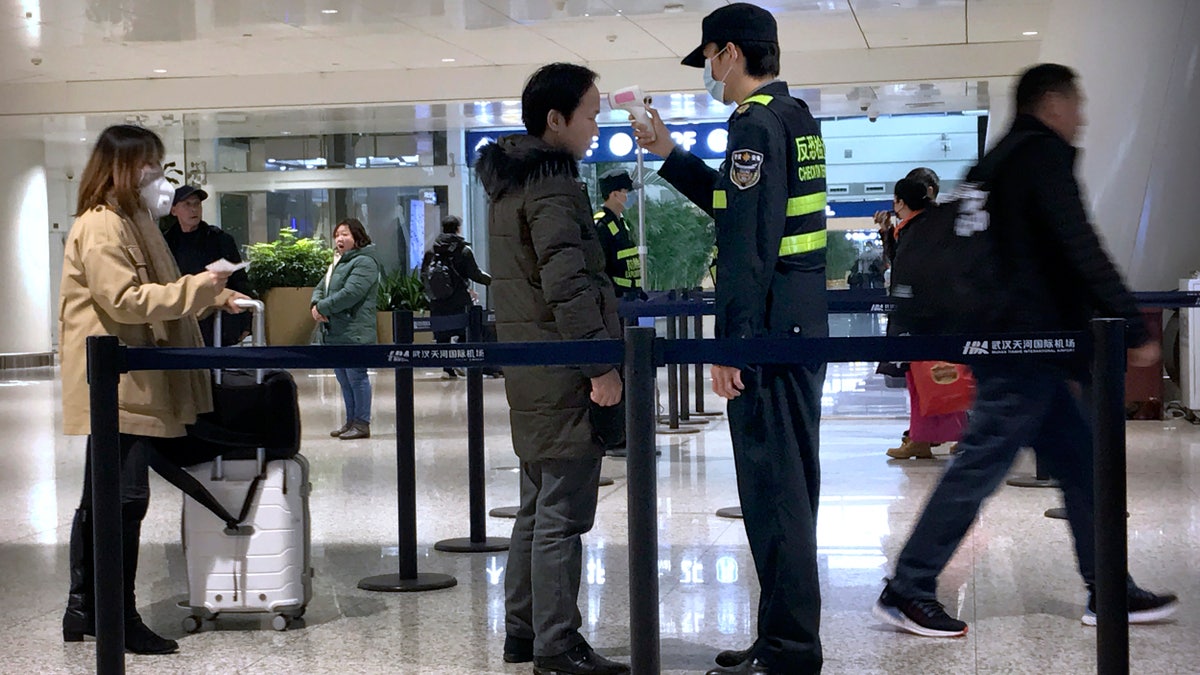
An official uses an infrared thermometer on a traveler at a health screening checkpoint at Wuhan Tianhe International Airport in Wuhan in southern China's Hubei province. (AP Photo/Emily Wang)
Coronavirus can cause a range of illnesses, from the common cold to Severe Acute Respiratory Syndrome (SARS) — the latter of which also began in China and infected some 8,000 people during a 2002-2003 outbreak. At least 770 died after it spread to other cities and countries across the world. At the time, international travel in combination with a few super-spreaders facilitated the massive outbreak, according to one report.
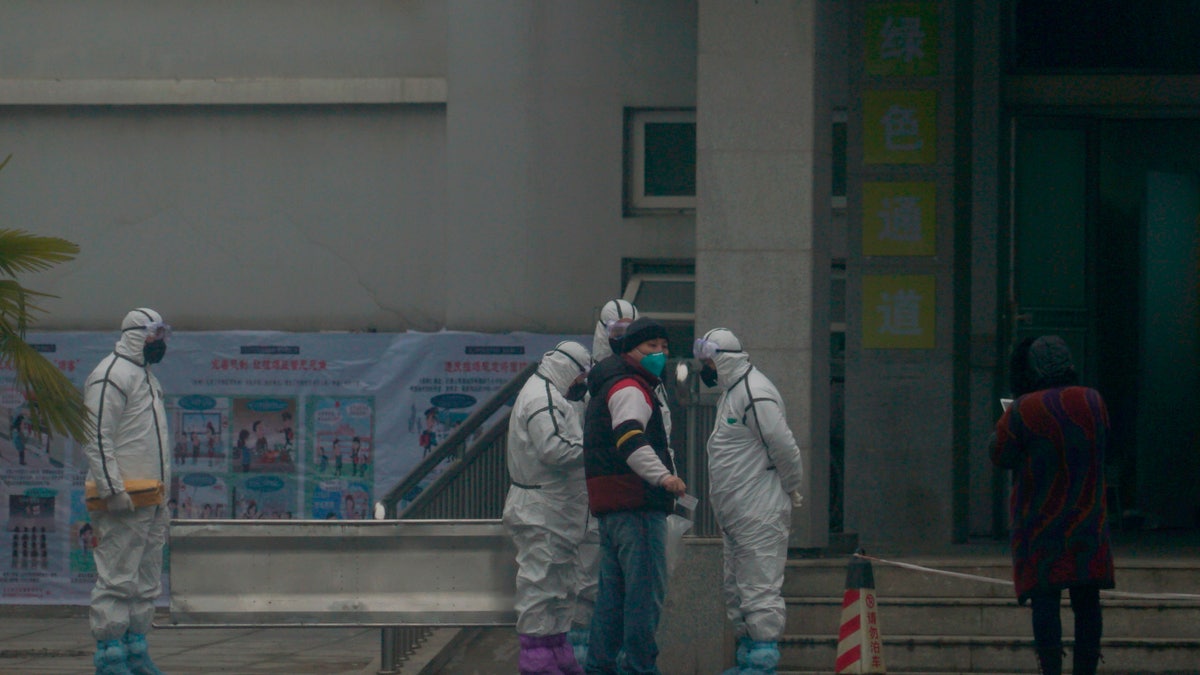
Staff in biohazard suits hold a metal stretcher by the in-patient department of Wuhan Medical Treatment Center, where some infected with a novel coronavirus are being treated. (AP Photo/Dake Kang)
In response to the outbreak, the World Health Organization (WHO) is holding an emergency meeting on Wednesday to determine whether or not it should be considered an international public health emergency, according to the South China Morning Post. Meanwhile, the CDC and the U.S. Customs and Border Protection (CBP) announced “enhanced health screenings” for airline passengers arriving from or traveling through the Wuhan province. San Francisco International Airport, John F. Kennedy International Airport and Los Angeles International Airport all began the initiative on Jan. 17.
CLICK HERE TO GET THE FOX NEWS APP
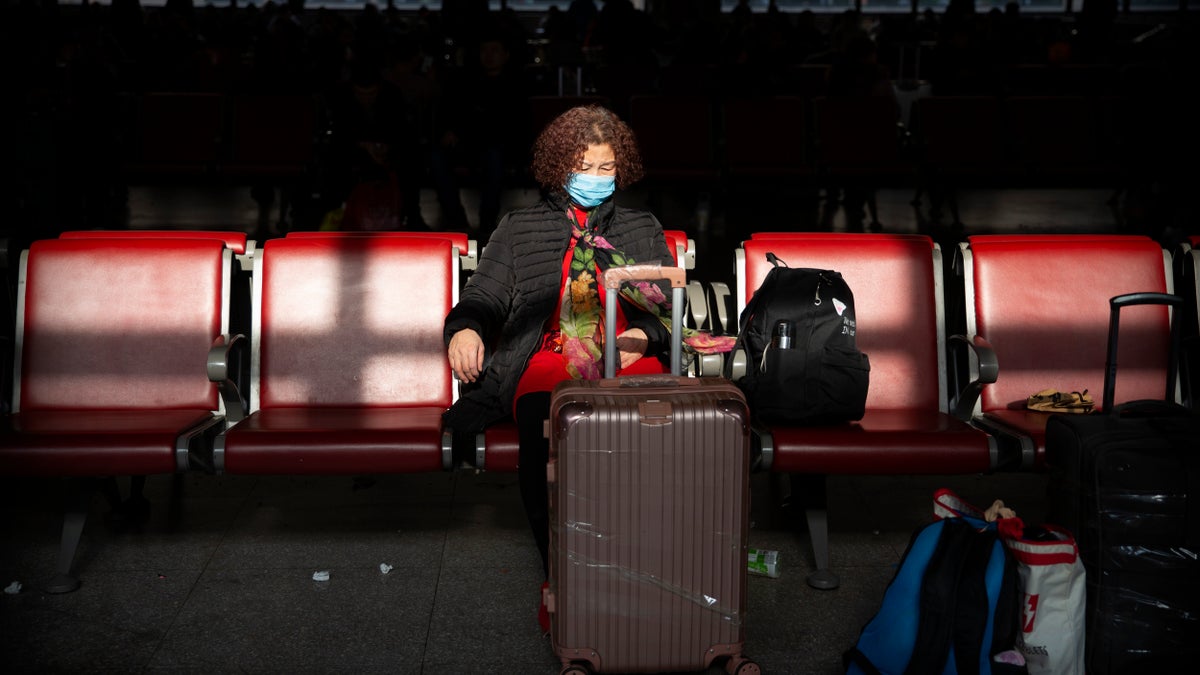
A traveler wears a face mask as she sits in a waiting room at Beijing West Railway Station in Beijing, Tuesday, Jan. 21, 2020. (AP Photo/Mark Schiefelbein)
Australia is taking similar measures, with officials there announcing Tuesday that the country will also begin screening passengers who are arriving from Wuhan, according to The New York Times. Japan and South Korea also announced increased airport screenings.
But even with screening measures, “You cannot absolutely prevent entry into the country of a disease like this,” Brendan Murphy, the chief medical officer for the Australian government, said, according to the newspaper. Some people who are infected may not show symptoms, he explained.
Fox News' Alexandria Hein and The Associated Press contributed to this report.
